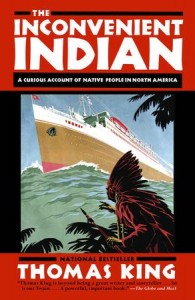Lately in ASTU we have gone through various poems and poets that have highlighted 9/11 and other traumas around the world. As well, the poetry book “This Connection of Everyone with Lungs” by Juliana Spahr has given us words that invoke thinking about how we can all relate to events that we aren’t directly associated with; that we all could have been that person killed in Palestine, yet we have the privilege of being safe and asleep in our beds at night. Throughout her poems, she allows us to read as if we are in both situations, and while her personal opinion isn’t affecting us, through her words we are able to understand why she is saying what she is:
“We wake up in the night with just each others, and admit that even while we believe that we want to believe that we all live in one bed of the earth’s atmosphere, our bed is just our bed and no one else’s and we can’t figure out how to stop it from being that way.” (Spahr, 30)
She guides us to understand our humanity, and how the way we understand the world isn’t always what it actually is or how it should be or what we want it to be. The connection that we all have is the powerlessness of not being able to control others and the negativity in the world, when in fact we all are interdependent on each other, and in a way we are all responsible for what happens to each other. The pluralization that Spahr uses with “each others,” “beloveds,” “yous” and “yours” corresponds with her ability to make us think how “embedded deep in our cells is ourselves and everyone else,” (Spahr, 31) and how effecting this knowledge should be in how we live our everyday lives.
This ability that she carries through her poetry allows for us to see the importance of such writings and how thought provoking the truth she brings is: “Beloveds, I keep trying to speak of thoughts of loving but all I speak about is acts of war and acts of war and acts of war,” (Spahr, 28) which says a lot about the way the world is today and how much we all want to love, and yet there is so much wrong occurring.
“Perhaps it isn’t the lovers in our beds that matter, perhaps it is the earth.” (Spahr, 34), which is exactly what we all need to think about more often.
-Mckaylee Catcher
Works Cited:
Spahr, Juliana. This Connection of Everyone with Lungs: Poems. Berkeley: University of California Press, 2005. Print.
